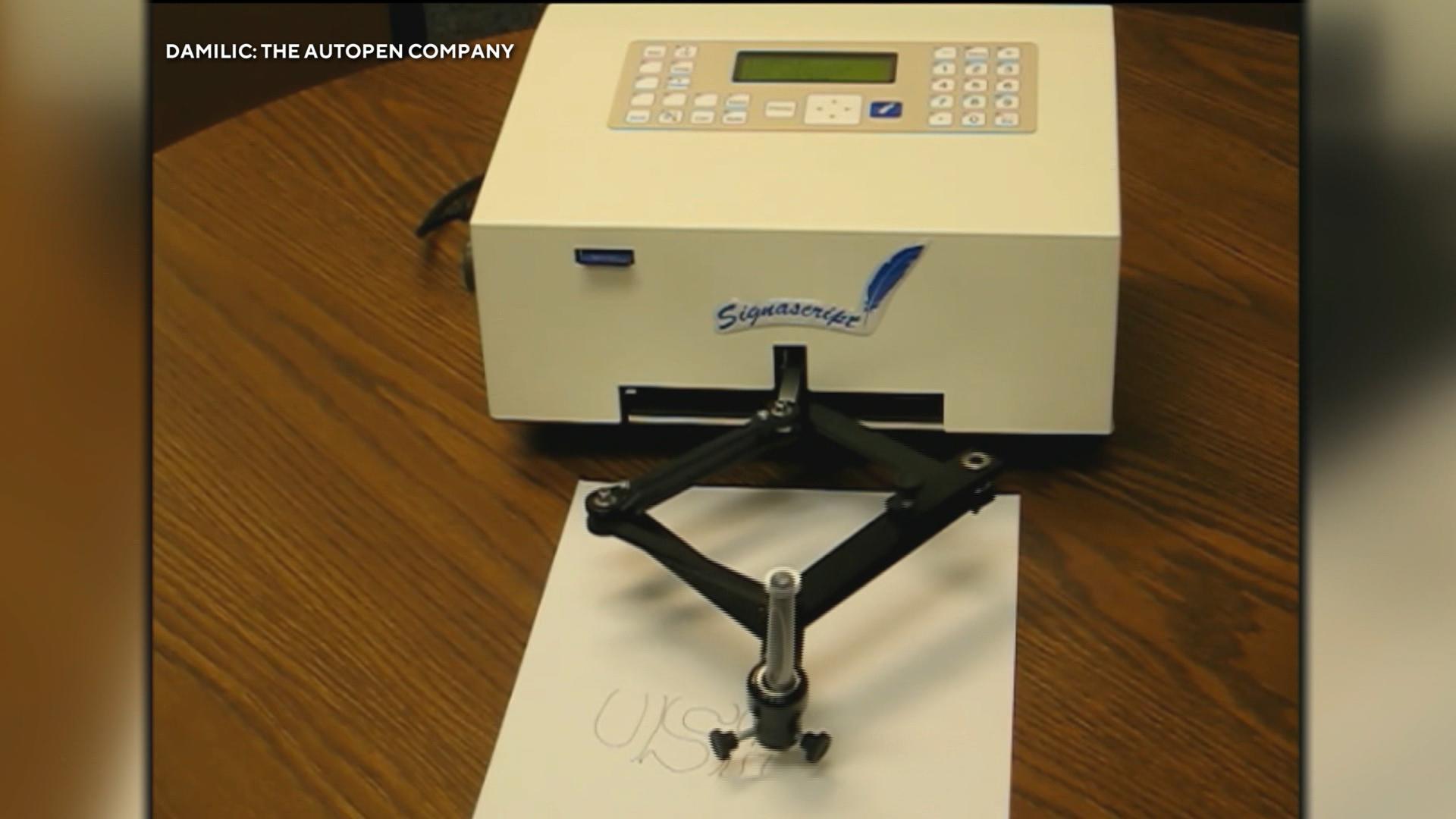Questionable Autopen Use: More Biden Administration Deception?
Donald Trump, the previous President, has committed his efforts towards aiding Republicans in their intensive investigation into the questionable practices of the former Biden Administration, particularly their liberal employment of the autopen. A consolidated team of nine major aides serving under Biden’s regime are currently under the congressional spotlight. Trump, on Tuesday, chose to unchain these aides from the constraints of executive privilege – a move that facilitates a barrier-free inquisition into this unconventional autopen utilization by the House Oversight Committee.
The crux of the investigation revolves around the substantial evidence hinting at a potential concealment by former Biden’s aides. The core concern rises from the indication that these aides, unconstitutionally, might have exercised Presidential powers to facilitate their concealment, thereby raising questions on Biden’s ability to enact Presidential duties. Consequently, such allegations call for a stringent examination of legislative and constitutional aptitude of Congress. Though asserting executive privilege would be a typical response in such scenarios, Trump, considering the intensive and complex nature of the investigation, has refrained from doing so, believing it to be against the national interest.
In addition to the significant number of Biden’s aides, President Trump has opted to forgo asserting executive privilege for several other key officials from Biden’s era. Steve Ricchetti the Counselor, Deputy Chief of Staff Annie Tomasini, Chiefs of Staff Ron Klain, Bruce Reed, Senior Advisers Mike Donilon, Anita Dunn, and Ashley Williams as well as Anthony Bernal – Jill Biden’s senior adviser, all find themselves free to be scrutinized by committee members.
One of these aides, Tanden, went through a private hearing session before the committee where she claimed that, even though the autopen was under her jurisdiction for translating Biden administration’s orders and documents into action, she had no insight on whether Biden himself greenlighted such decisions. She, along with other aides, would send approval requests for the use of an autopen to Biden’s core group. However, the validity of Biden’s personal approval on these requests returned remained uncertain to them.
Tanden’s testimony took an interesting turn when she confirmed not having any discussions regarding Biden’s deteriorating physical and cognitive health with any other authorities. She denied any attempts to veil the frail state of Biden’s health condition. However, given the grim reports hinting at Biden’s unawareness about several executive orders that he supposedly sanctioned, her claims have been met with suspicion.
This narrative has spurred apprehensions amongst Republicans, as it casts a shadow on the constitutionality of the decisions taken during Biden’s term, given his poor cognitive health and extensive reliance on the autopen. Historically, the purpose of the autopen had been mundane – limited to check-signing, routine correspondence, and other non-legislative tasks.
Subsequent to Obama’s authorization for the use of the autopen in 2011, for extending the Patriot Act during his time in France, the device’s usage saw an unexpected proliferation. Its rampant use raises questions since it was used under Biden, whose cognitive shortcomings were clearly noticeable throughout his presidency, bringing serious doubts on his engagement in the official matters.
The controversial use of the autopen is further magnified considering the excessive clemency acts (4,245) issued during his tenure – the highest by any president – including the dubious preemptive pardons to his son Hunter, Dr. Anthony Fauci, General Mark Milley, and participants from Jan 6 Committee in the final days of his presidency.
Behind these extraordinary preemptive pardons arises a pivotal legal query. If a president’s mental health is in such a decayed state that he cannot carry out his prescribed duties, what mechanisms are in place to assure the public that the autopen’s use indeed aligns with the President’s intents and not determined by the whims of an aide?
Simultaneously with the House Oversight Committee’s thorough probe, Trump has initiated his own investigation into the Biden administration’s hazy practices around the use of the autopen and the alleged hidden truth about the former president’s health.
Intriguingly, instead of assigning the investigation to the conventional choice – the U.S. attorney for the District of Columbia – Trump has entrusted White House Counsel David Warrington and the U.S. Department of Justice with this significant responsibility.
Furthermore, the Senate Homeland Security and Governmental Affairs’ select subcommittee alongside the Senate Judiciary Committee have also set in motion their own examinations and hearings. The aim is to probe into the questionable use of the autopen and the alleged cover-up of Biden’s cognitive decline which prevailed throughout his term.
With such escalated and momentous circumstances hovering, one cannot but fear for the consequences of these uncovered truths, the actions taken during Biden’s presidency, and the extent of influence of his cognitive decline on these actions, questioned further by alleged unfair and illegal exploitations of the considerable powers of the autopen.

